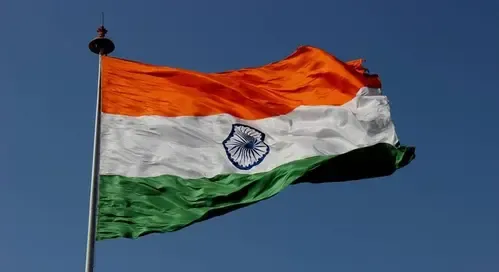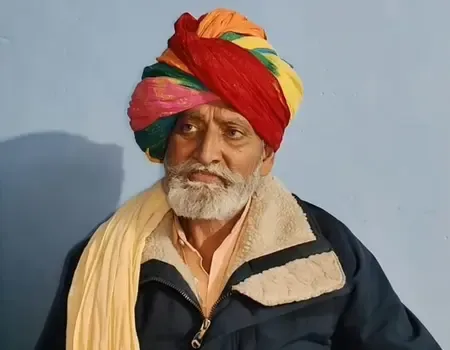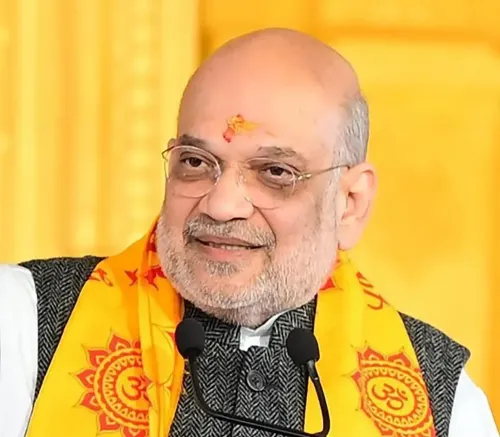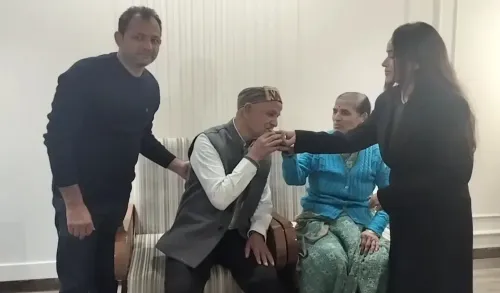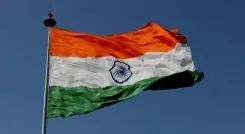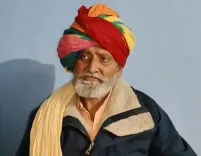What Happened During the Bihar Bandh Led by Rahul Gandhi and Tejashwi Yadav?
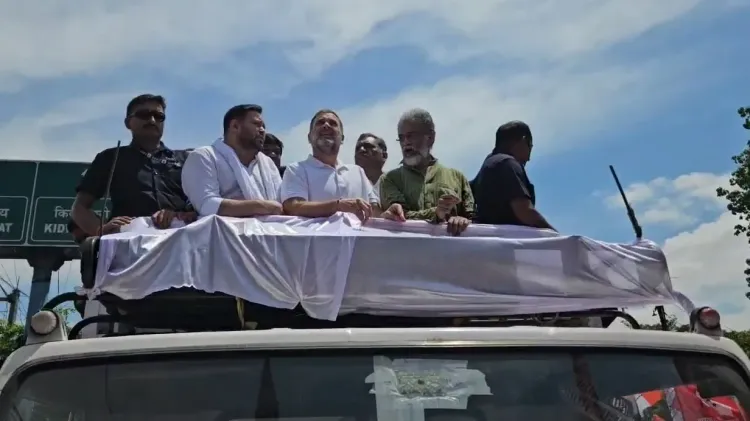
Synopsis
Key Takeaways
- The Bihar Bandh was organized by the Grand Alliance against potential voter disenfranchisement.
- High-profile leaders like Rahul Gandhi and Tejashwi Yadav played key roles in the protests.
- The bandh caused major disruptions in transportation across Bihar.
- Concerns were raised regarding the implications of the Special Intensive Voter List Revision.
- The ruling government labeled the protests as politically motivated.
Patna, July 9 (NationPress) The Bihar Bandh organized by the Grand Alliance (Mahagathbandhan)—which includes the Congress, RJD, and Left parties—against the Election Commission's Special Intensive Voter List Revision (SIR) saw significant engagement and extensive disruptions statewide on Wednesday.
In Patna, the Leader of the Opposition in Lok Sabha, Rahul Gandhi, RJD leader Tejashwi Yadav, CPI-ML general secretary Dipankar Bhattacharya, VIP chief Mukesh Sahani, and other prominent Mahagathbandhan figures spearheaded a protest march from the Income Tax roundabout to the Election Commission office via Veer Chand Patel Path.
The leaders initially walked, but as the crowd of supporters grew, they continued the rally in an open vehicle.
Purnea MP Rajesh Ranjan, also known as Pappu Yadav, along with Congress members, halted trains at the Secretariat Railway Station, causing disruptions in rail services. Yadav claimed that the voter verification initiative was a 'plot to eliminate millions of voters' from the rolls.
The bandh's effects were evident throughout Seemanchal and other politically charged districts.
In Katihar, Grand Alliance activists obstructed NH-31 and State Highway-77 near Kursela, resulting in traffic jams and long delays.
In Vaishali, under RJD MLA Dr. Mukesh Roshan, substantial roadblocks were established at Gandhi Setu and Ramashish Chowk, obstructing traffic on essential national highways.
In the Danapur and Maner regions of Patna district, demonstrators set fire to tyres and shouted slogans like 'Vote ban will not work' and 'We are Hindustani, we demand our citizenship,' while blocking NH-30.
In Barh, protesters obstructed NH-31, claiming that the impoverished were being unjustly targeted and excluded from the electoral process.
The SIR, which requires voters to provide specific documentation for verification, has faced sharp criticism from opposition parties in Bihar, labeling the initiative as anti-poor, anti-migrant, and a mechanism for voter suppression ahead of the upcoming Assembly elections in three months.
Opposition leaders argue that this process could disenfranchise numerous Dalits, Mahadalits, migrant workers, and other economically marginalized groups.
Conversely, the ruling NDA has dismissed these apprehensions, describing the protests as politically motivated.


